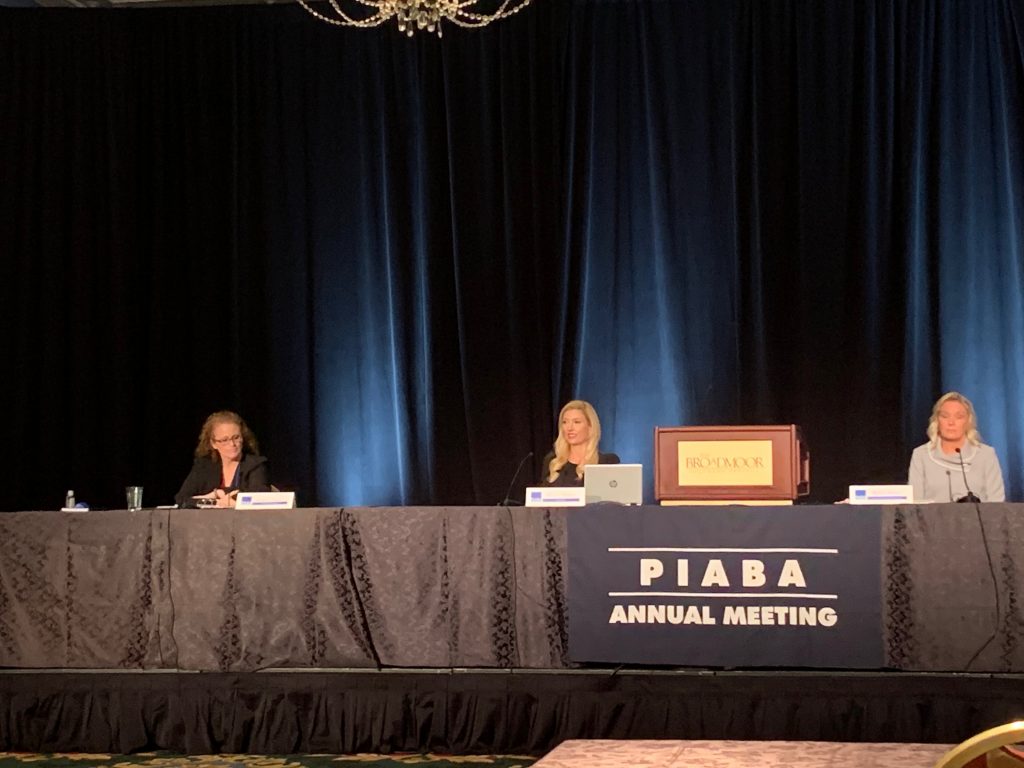
Awarded to one or more PIABA Members annually, “the PIABA Outstanding Service Award honors the very best in the PIABA Membership,” said Robin Ringo, PIABA Executive Director. “An incredible amount of personal time is dedicated by members to serving PIABA through its committees and investor protection initiatives. It is with a deep sense of gratitude that we thank Teresa J. Verges, William B. Young, Jr., and Sara E. Hanley for their dedication to PIABA and advancing the rights of public investors.”
Sara E. Hanley has been a member of PIABA since 2013. Having completed her year as Editor-in-Chief in October 2020, Ms. Hanley served on the PIABA Bar Journal Board of Editors from 2017-2020. She focuses her practice on representing investors nationwide who have lost their savings and retirement funds as a result of their brokerage accounts being mishandled. Ms. Hanley is the founder of Hanley Law which focuses exclusively on representing investors in claims against their brokers, broker dealers, investment advisors, financial advisors and insurance companies. She is experienced in providing representation for investors who have been the victims of financial fraud, negligence and unsuitable investments, as well as experience in prosecuting claims against the major Wall Street brokerage firms.

